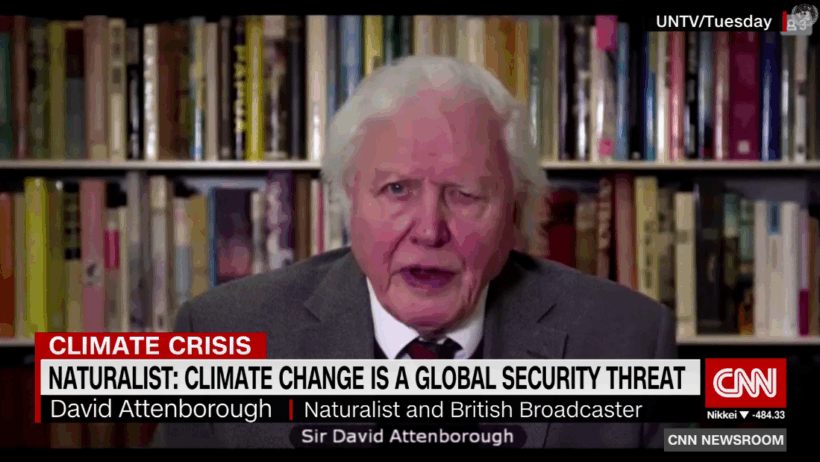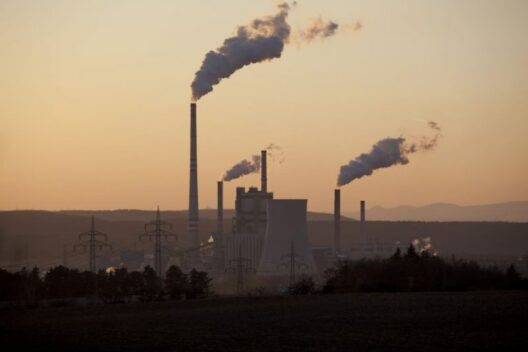Global warming, an all-encompassing term for the rise in Earth’s average surface temperature due to human activities, presents a formidable challenge that transcends environmental degradation. Its ramifications extend deeply into the realm of national security, operating as a catalyst for geopolitical tension, resource scarcity, and migration crises, thereby reshaping how nations perceive their vulnerabilities. Among those nations, Indonesia stands prominently, given its unique geographic and socio-economic context. This discourse elucidates the intersecting realms of climate change and national security, emphasizing the imperative for a paradigm shift in how we understand and address these pressing issues.
At its core, global warming engenders a plethora of environmental changes—rising sea levels, extreme weather patterns, and disrupted ecosystems. These alterations are not mere shifts in weather; they pose existential dilemmas for nations, particularly those with extensive coastlines and agrarian economies, like Indonesia. The archipelago, comprising over 17,000 islands, is acutely susceptible to the wrath of climate change. With approximately 60% of its population residing in coastal areas, rising sea levels threaten not just habitats but the very economic frameworks upon which communities depend.
The interplay between global warming and national security is multi-faceted. For one, as environmental conditions deteriorate, resources become scarce. Water scarcity, exacerbated by prolonged droughts and erratic rainfall patterns, can lead to intense competition over dwindling supplies. In Indonesia, where agriculture is a mainstay, erratic rainfall and prolonged dry spells can devastate crops, leading to food insecurity. Such dire circumstances do not occur in isolation; they often instigate social unrest, as dissatisfied populations grapple with shortages and rising prices. The potential for conflict becomes palpable as communities compete for the same limited resources.
Moreover, the displacement of populations due to climate-related impacts compounds the challenges faced by governments. Indonesia, along with other vulnerable nations, could witness significant internal migration as people flee uninhabitable regions. In a country where geological disasters—such as volcanic eruptions and earthquakes—already spur displacement, the additional variable of climate change could result in unprecedented humanitarian crises. The International Organization for Migration forecasts that by 2050, upwards of 200 million people worldwide could become climate refugees, underscoring an urgent need for nations to re-evaluate their security frameworks in light of these potential migrations.
International relations and diplomacy are also deeply intertwined with the concept of climate-induced security threats. As resources become scarce and migration pressures increase, the dynamics between nations can shift dramatically. Nations may find themselves navigating a treacherous landscape where collaboration is essential but fraught with challenges. Indonesia’s strategic position along critical maritime routes amplifies the necessity for cooperative governance of shared resources, such as fisheries and water sources. The potential for conflict over these resources necessitates a robust diplomatic approach, one that fosters collective action against the common threat posed by climate change.
Moreover, the geopolitical ramifications of climate change extend beyond individual nations. Consider the melting polar ice caps, which opens previously inaccessible shipping routes. This new landscape invites competition among countries vying for control over these emerging paths. The potential for territorial disputes in Arctic regions illustrates how climate change can catalyze international tension, transforming environmental challenges into security dilemmas. The principle that climate change transcends borders underscores the need for global cooperation and proactive diplomatic engagements that prioritize collective security over nationalistic tendencies.
Additionally, the economic implications of climate change cannot be underestimated. The strain on nations’ economies due to climate-related disasters can exacerbate existing vulnerabilities. In Indonesia, where tourism is a vital economic driver, changes in natural landscapes and weather patterns could deter visitors and disrupt local economies. Such shifts can lead to job losses, further impoverishing already vulnerable communities and igniting social discontent. Thus, climate change presents a holistic challenge—one where economic strategies must be integrated with environmental policies to fortify national resilience.
Addressing the multi-dimensional threats posed by global warming requires innovative strategies and a reimagined security paradigm. Instead of viewing national security through a narrow lens—focused primarily on military readiness—governments must broaden their scope to incorporate climate resilience into their strategic frameworks. This entails investing in sustainable technologies and mitigating emissions while concurrently preparing for climate-related disruptions. Nations like Indonesia could lead the charge by developing adaptive agricultural practices, enhancing disaster response systems, and promoting green technologies that meet both economic and ecological needs.
In conclusion, the nexus between global warming and national security signifies a pivotal juncture in comprehending contemporary threats. As nations grapple with the implications of rising temperatures, shifting weather patterns, and resource scarcity, it becomes increasingly evident that climate change is not solely an environmental issue but a profound security dilemma. Countries, especially those vulnerable like Indonesia, must reshape their perspectives, recognizing that their security paradigms must evolve in tandem with an increasingly unpredictable climate. Engaging in cooperative international diplomacy, fortifying local economies, and enhancing adaptive capabilities will be paramount in navigating this intricate challenge. The future hinges on our ability to forge a collective response to an undeniably global predicament, one where the survival of nations hangs precariously in the balance.







